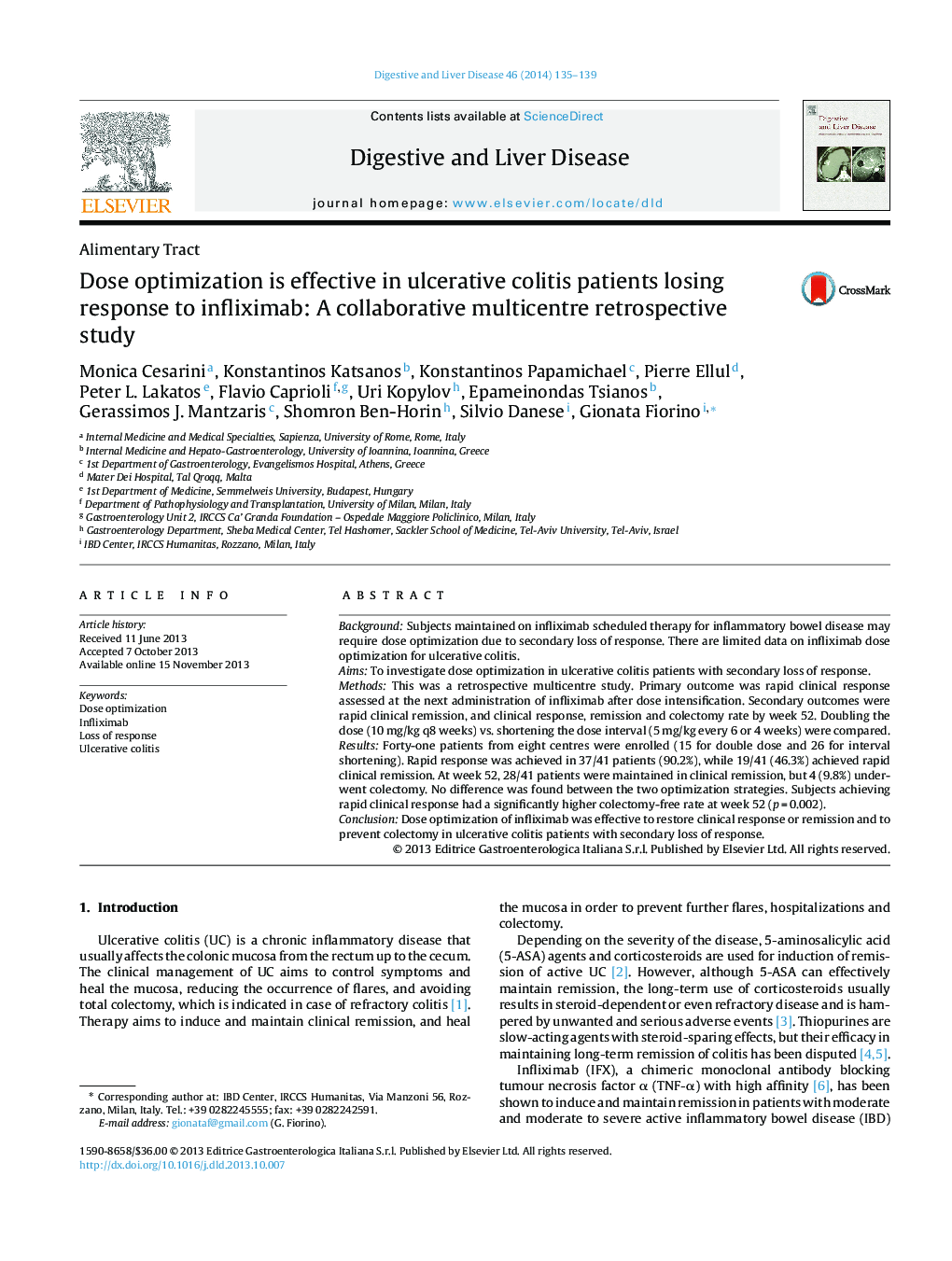| Article ID | Journal | Published Year | Pages | File Type |
|---|---|---|---|---|
| 6088792 | Digestive and Liver Disease | 2014 | 5 Pages |
BackgroundSubjects maintained on infliximab scheduled therapy for inflammatory bowel disease may require dose optimization due to secondary loss of response. There are limited data on infliximab dose optimization for ulcerative colitis.AimsTo investigate dose optimization in ulcerative colitis patients with secondary loss of response.MethodsThis was a retrospective multicentre study. Primary outcome was rapid clinical response assessed at the next administration of infliximab after dose intensification. Secondary outcomes were rapid clinical remission, and clinical response, remission and colectomy rate by week 52. Doubling the dose (10 mg/kg q8 weeks) vs. shortening the dose interval (5 mg/kg every 6 or 4 weeks) were compared.ResultsForty-one patients from eight centres were enrolled (15 for double dose and 26 for interval shortening). Rapid response was achieved in 37/41 patients (90.2%), while 19/41 (46.3%) achieved rapid clinical remission. At week 52, 28/41 patients were maintained in clinical remission, but 4 (9.8%) underwent colectomy. No difference was found between the two optimization strategies. Subjects achieving rapid clinical response had a significantly higher colectomy-free rate at week 52 (p = 0.002).ConclusionDose optimization of infliximab was effective to restore clinical response or remission and to prevent colectomy in ulcerative colitis patients with secondary loss of response.
